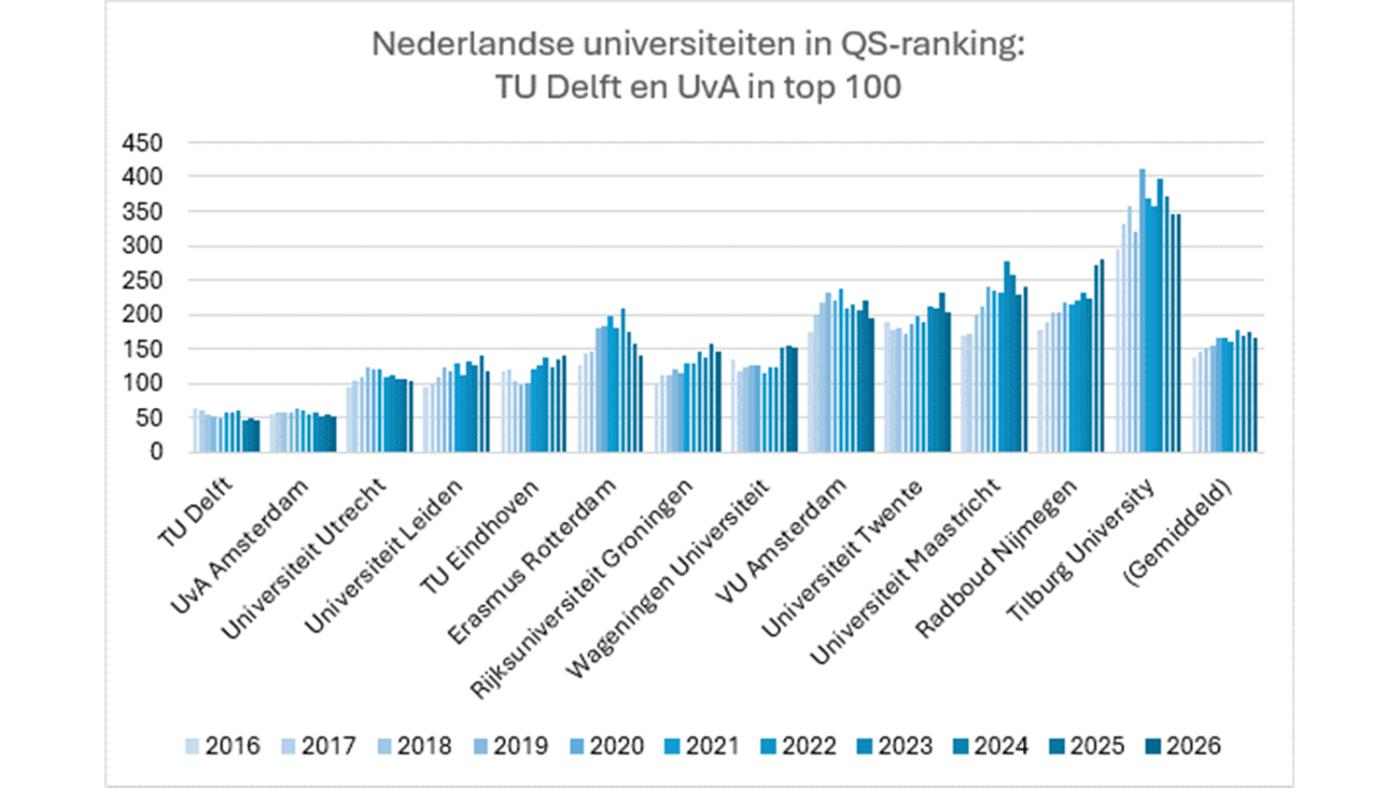Utrecht ranked 105th
Dutch universities score better in global QS ranking

The 2026 edition of the QS World University Rankings was published today. The Massachusetts Institute of Technology, in the United States, is once again the number 1. Like last year, four American universities and four British universities are in the top 10. ETH Zurich and the National University of Singapore are ranked 7th and 8th.
Over the years, Dutch universities have lost ground in rankings, although TU Delft and the University of Amsterdam have always scored well. However, this year, nine of the thirteen universities in the country have improved their rankings.
According to QS, Dutch higher education scores best in Europe. However, they do warn against austerity measures imposed by the government and restrictions on the number of English-language programmes.
The most important criterion in the ranking is the university's reputation among scientists and employers, which together account for 35 percent of the score. According to QS, the Netherlands scores highly in this respect. However, in terms of citation scores (a measure of the influence of scientific articles), the Netherlands has slipped back somewhat.
Criticism
There are other world rankings in circulation, such as the Shanghai Ranking and the British Times Higher Education ranking. Those who are critical of such lists argue that they create their own reality: how can you give a single score to an entire university? How big are the differences, really?
Moreover, some institutions do everything they can to improve their score. A university in Saudi Arabia, for example, even paid scientists to say they worked there, so that their reputation would contribute to that university's ranking.
Citation scores are also controversial. For example, research into the earthquakes in Groningen will attract little attention outside the Netherlands. Does that make it less valuable?
Such criticism often leads to calls to ignore the rankings. Utrecht University has stopped participating in them altogether and no longer provides data for the publishers. As a result, the university is no longer featured in the Times Higher Education ranking. However, the QS ranking uses other sources, not just the information provided by the university itself. That's why UU still appears on the ranking. It ranks third among Dutch universities, just like last year. In the overall ranking, it is number 105.
Two thoughts
The association of Dutch universities (UNL) summarises the criticism on its website. They argue that the choices made by ranking compilers are arbitrary and debatable, hence their decision to attach little importance to such lists.
Two years ago, a recommendation from their own “expert group” stated that a cultural change was needed to prevent universities from making “opportunistic use” of rankings.
However, the experts do not want to ignore the rankings entirely. “At the same time, this cultural change must take place in a way that does not pose a disproportionate risk to the reputation and name recognition of universities,” the advice states.

De grafiek is gemaakt door het HOP met input uit de QS.